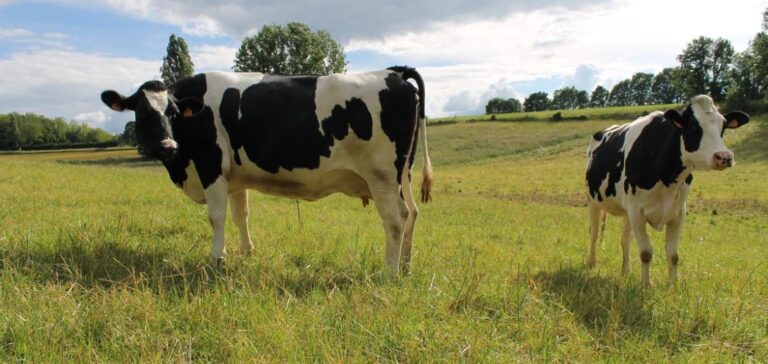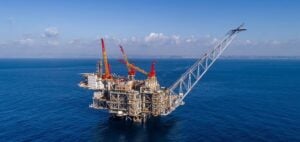In the Dordogne, bioNGV is taking root and transforming the agricultural sector. Here methane is used as fuel by Bertrand Guérin. This farmer opted to produce methane gas from his cows’ excrement to reduce harmful emissions from agriculture without giving up raising animals.
A farm in the Dordogne region of France has become automated thanks to bioNGV
Located just a few steps from the barn, a gas station was built to allow Bertrand Guérin to fill up his tractor. This station does not sell diesel, but bioGNV (natural biogas for vehicles), produced directly on the farm. This innovation saved the operator money, but also reduced pollution. This fuel powers all of the farm’s cars and a new tractor, the first to run on bioNGV, which was put on sale last year by the Italian-American manufacturer New Holland.
The environmental and economic benefits of bioNGV
Methane is a gas that warms the climate much more than CO2 and it plummets the carbon balance of cattle farming. Nearly half of the greenhouse gas emissions from French agriculture are due to methane, whether it is belched out by cows or released from their manure. To improve his carbon footprint, and spend less, Bertrand Guérin transforms this source of pollution into fertilizer and fuel. Every day, 40 tons of organic matter, two thirds of which is manure and slurry and one third is waste from the food industry, are swallowed up by the methanizer to ferment at 38 degrees. Bacteria degrade the material and release CO2 and methane. Most of this biogas is burned to turn a motor that generates heat and power. The electricity is injected into the grid to supply “the equivalent of 1,000 families”. A fraction of the biogas is purified to keep only the methane, and compressed to make fuel.
Agriculture, a sector of the future
Bertrand Guérin, vice-president of the Association of methanizing farmers in France (AAMF), wants farmers to develop this profession. According to him, giants such as Engie and TotalEnergies, in search of alternatives to fossil fuels, could seize the market related to methane from agricultural activity. Let the farmers develop this profession, pleads the breeder.





















